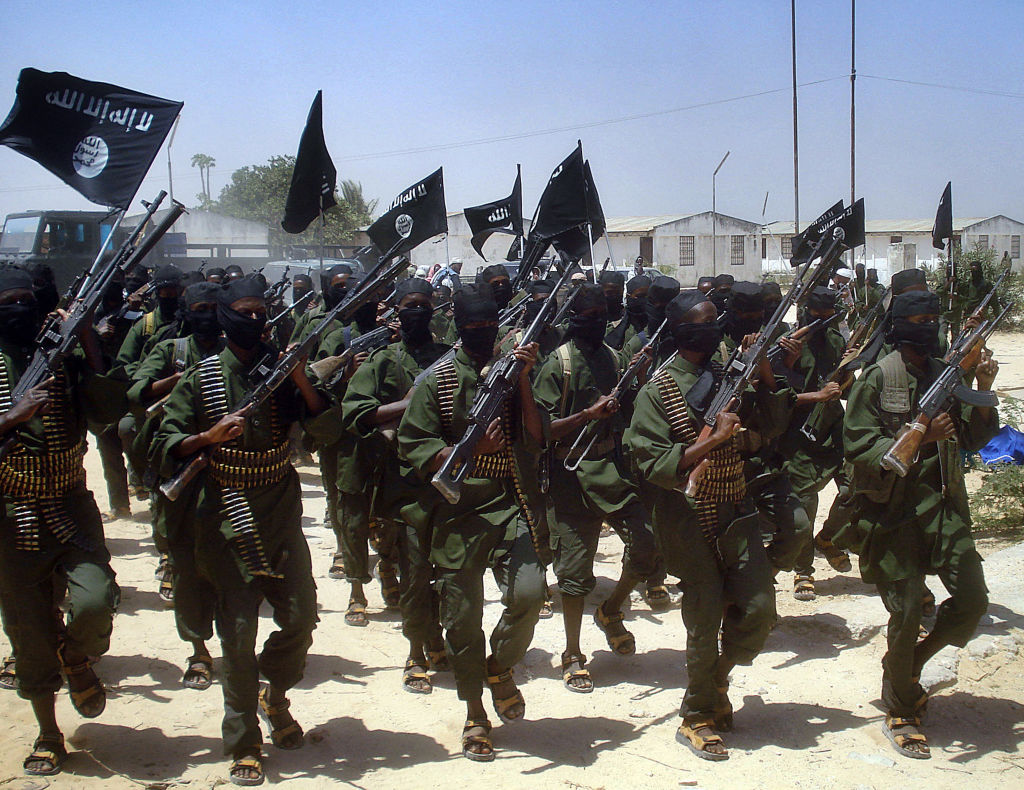ADF STAFF
Al-Shabaab, the terrorist group that continues to launch deadly attacks against Somali civilians, Soldiers and international peacekeepers, has reached its 18th anniversary.
The group’s long lifespan is significant as an estimated 25% to 74% of terror groups worldwide do not last more than one year, according to the United States’ National Consortium for the Study of Terrorism and Responses to Terrorism.
However, some terror groups linked to al-Qaida and the Islamic State in Africa have survived for many years, and Al-Shabaab continues to thrive despite efforts by the Somali National Army, African Union forces and local clan militias.
On September 15, the group raided a military base in Badoa, killing two people during several hours of gunfire. Sources told Somalia’s Garowe Online news agency that several Soldiers were recently transferred to reinforce regional forces in a dispute over a checkpoint involving local militias. Paramilitary forces also were recently transferred from Badoa.
Analysts have identified several factors behind the group’s longevity.
Al-Shabaab’s illegal taxation, smuggling and money laundering schemes allow it to thrive. Revenue from these activities has helped the group recover after suffering substantial battlefield losses.
“It can do this because its opponents don’t do enough to protect conquered areas or areas controlled by the government,” Stig Jarle Hansen, professor of international relations at the Norwegian University of Life Sciences, wrote in The Conversation.. “Al-Shabaab is able to govern and control even areas that are militarily controlled by the state and the African Union mission.”
According to analysts Mohamed Mubarak and Ashley Jackson, the group’s relationship with civilians is essential to its survival. It gains favor with locals by exploiting political tensions, local grievances and government neglect.
“Because much of Al-Shabab’s relationship with civilians depends on local circumstances and clan politics, the terms of life under al-Shabab control consequently vary from one place to the next,” Mubarak and Jackson wrote for the Overseas Development Institute, an independent think tank. “One constant, however, is that Al-Shabab strategically taps into and co-opts customary power structures, which in turn allows it to control the population.”
The group’s relationship with the country’s various clans is also integral to its staying power. The government has mobilized clans to fight al-Shabaab, but conflicts among clans can complicate this effort. Sometimes, clan conflicts persuade locals to align with al-Shabaab for protection.
“Rural security, including mediation between clans, has not been a part of the approach to fight al-Shabaab,” Hansen wrote.
The Somali National Army has grown substantially over the past 15 years to about 19,000 troops. Training has improved, and desertion rates are much lower than in the past. But the Army still lacks the capacity to launch effective offenses in several regions simultaneously, leaving security gaps for terrorists to exploit.
“This raises doubts about the military support that the Somali army can provide to federal states which are reluctant to face al-Shabaab alone,” Hansen wrote.
Security forces have tried to win the “hearts and mines” of civilians in areas under al-Shabaab control, but this has failed, according to Hansen. Somali and international security forces have been unable to provide consistent security throughout the country or support the establishment of democratic institutions.
Al-Shabaab has been particularly difficult to dislodge in its strongholds of Lower and Middle Juba, and in the South West State. In these regions, al-Shabaab rests its fighters, trains new ones, and coordinates operations and propaganda efforts.
“It is impossible to vanquish the group without taking these territories,” Hansen wrote.

